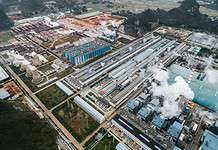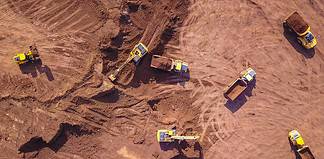 BHP Billiton has placed its WA-based Nickel West assets on the market as it ramps up plans to simplify its commodity portfolio. The company recently named nickel as one of several non-core assets to be primed for divestment, with its refined commodities portfolio to only feature iron ore, copper, coal and petroleum, in a ‘four pillar’ plan.
BHP Billiton has placed its WA-based Nickel West assets on the market as it ramps up plans to simplify its commodity portfolio. The company recently named nickel as one of several non-core assets to be primed for divestment, with its refined commodities portfolio to only feature iron ore, copper, coal and petroleum, in a ‘four pillar’ plan.
The divested assets, including aluminium, manganese and zinc, would be spun off into a new entity and handed back to shareholders.
In mid May, Nickel West president Paul Harvey told the company’s 1800 workers that BHP’s nickel assets would likely be sold off, either in part or in full. “As part of this process, we will shortly be inviting third parties to visit our operations,”
Mr Harvey wrote in an internal memo. The assets include the Mt Keith, Cliffs and Leinster mines and associated infrastructure; the closed Perseverance underground mine; and the Kalgoorlie smelter, Kambalda concentrator and Kwinana refinery.
Preliminary valuations for the assets have varied widely, from $800 million to more than $2 billion. The Australian reported a trade sale of Nickel West would likely be les complicated than a demerger, as the latter required value adjustments between ASX and London-listed shares.
News of the potential sale was bolstered by the recent restrengthening of the global nickel market: the refined metal recently lifted to a two-year high on the London Stock Exchange, trading at more than US$21,000 per tonne.
On the ASX, prices have increased by up to 50 per cent since the start of the year to US$18,750/t of nickel. The dramatic increase stemmed from sudden restraints in supply, after Indonesia – the world’s biggest nickel
ore miner – banned exports in January. Russia, the world’s second largest supplier, has also experienced decreased exports due to global sanctions from its activity in the Ukraine.
Despite the healthier market, Sydney-based Royal Bank of Canada analyst Chris Drew told Bloomberg that nickel remained an unnecessary commodity for BHP. “For BHP, it’s something that doesn’t move the needle anymore,” Mr Drew said.
“The overall size of the busines means it’s not material enough for them to justify maintaining or potentially putting capital into, so it’s better off in someone else’s hands.”
In 2013, BHP was ranked the fifth-largest producer of refined nickel by London-based metals, mining and fertilizer company CRU.











































